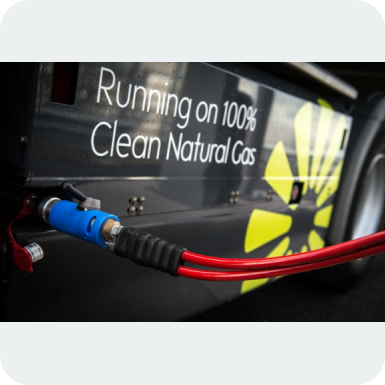
Biomethane must support reductions in transport emissions to achieve Sixth Carbon Budget decarbonisation targets
Roadgas welcomes the Sixth Carbon Budget from the Climate Committee which outlines the balanced pathway for decarbonisation and UK wide economic development in terms of innovation, infrastructure and green jobs.
Two years in production, the report sets out the key aims and targets for carbon reduction across all sectors from 2033 to 2037. The UK Government last week committed to reducing carbon emissions by 68% to help ramp up the drive towards net zero 2050. Today’s report lays out a much more ambitious target of achieving a 78% reduction by 2035. Decarbonisation for the UK economy needs to happen fast and big.
It identified 4 key drivers for delivery – consumer behaviour towards low carbon activities, adoption of low carbon technologies, the expansion of low carbon energy systems and emissions’ offsetting through the increased use of CCUS together with an overall reduction in greenhouse gas emissions. The total cost of delivery is calculated at less than 1% of total GDP to be able to achieve these goals.
The report importantly acknowledges the challenge relating to the heavy goods sector in transport. Despite comprising only 5% of road vehicles, HGVs produce 17% of GHG emissions. Transitioning to zero-carbon alternatives in this sector requires the wide-scale deployment of bio CNG and biomethane gas vehicles and infrastructure now.
David Rix, Managing Director “Transport is the single largest sector for carbon emissions so we all know it needs to be decarbonised quickly for us to meet the net-zero 2050 carbon targets. It is, therefore, a missed opportunity for the CCC to have ignored the enormous potential of renewable (green) gas to bring down carbon emissions from HGVs.”
“Biomethane has been widely adopted by a number of major retail and logistics fleets with over 700 vehicles now running on UK roads. Renewable gas-fuelled HGVs reduce carbon emissions by at least 84% compared to diesel and more importantly save fleet operators an average of £29,000 a year per vehicle (52% of typical fuel costs) according to the latest figures from the Gas Vehicle Network. This is a clear win-win for HGV fleet owners and managers as well as policymakers who want to see progress on transport decarbonisation as soon as possible.”
“Not content with the immediate 84% carbon savings, the HGV industry is now fuelling with biomethane in ever greater quantities, resulting in negative greenhouse gas emissions from the sector. In the near future, carbon negative transport biofuels will also be developed, pushing decarbonisation potential even further. A carbon neutral, ‘no regrets’ fuel available for one of the most difficult to decarbonise sectors is something that can help the CCC achieve their balanced pathway and ultimate goal of hydrogen fuelled HGVs’
The CCC’s report has delivered the framework for the UK Government to deliver on its’ legal commitment laid down in the historic Climate Change Act but the risk remains over the political ambition for its’ delivery. Increased cross-department co-ordination and endorsement of removal of all carbon-emitting activity remains to be seen. There is no doubt that the hard work of decarbonising all sectors needs to be achieved in this parliamentary term. With ongoing discussions regarding Brexit and questions of ‘a deal or no deal’ how it is delivered will pose interesting challenges for the UK’s climate goal aspirations and achievements.
For more information or images please contact Becky Rix, Marketing Director
E: beckyrix@roadgas.co.uk or M: 07734 231540





